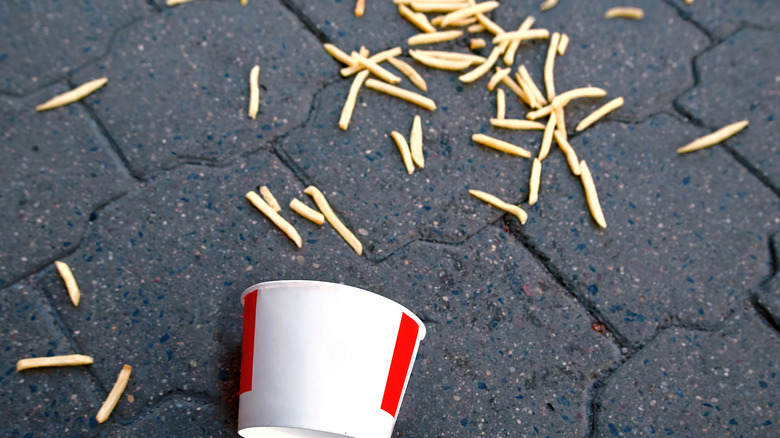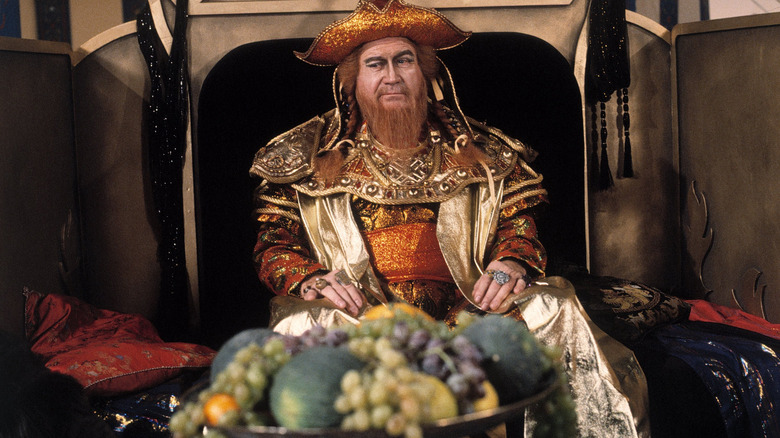The Mysterious Origins Of The 5-Second Rule
Everything is all ready for a great dinner with some special guests. The food has been bought and prepped. The table set. The wine poured. You've timed it perfectly to have the appetizers ready as the first guests arrive, but as you cook them, a key ingredient falls on the floor. Now you have a dilemma on your hands ... do you follow the 5-second rule and continue to cook, or do you scrap the recipe?
The decidedly-unscientific 5-second rule governs how long food can be on the ground and remain edible. Food scientist Paul Dawson did some tests to determine if the 5-second rule should be applied to dropped food. What he learned was the length of time an item spends on the floor does matter, but so does how clean the floor is and what material the floor is made of. Even chef Alton Brown says he follows the 5-second rule for dropped food, but only when it comes to food he eats (none that he would serve a guest). He also takes into consideration if the food was dropped on a clean floor and if the food was hot.
No matter how clean a floor is, there is risk involved with eating anything that lands on it, per Healthline. When food falls on the ground, bacteria will get on it, but you won't know what kind or how much. So, how did this unscientific, yet widely applied rule get created?
A rule created by a ruler
While not quite as old as time, the 5-second rule is thought to go back centuries to the days of Genghis Khan in the 13th century, according to the book "Did You Just Eat That?" Dawson, and co-author Dr. Brian Sheldon, wrote that the rule may have started when food was dropped on the ground during a banquet held by Khan. As the story goes, the Mongolian ruler said he would decide how long food could stay on the ground and still be eaten.
About 700 years later, it was a chef on TV that helped to further the acceptability of the rule. Fans of the cooking show "The French Chef" contend that host Julia Child said it's OK to eat something that has fallen on the ground, according to Popular Science. The truth behind the story is that a piece of potato pancake landed on Child's stovetop, after which she picked it up and put it back in the pan, adding "But you can always pick it up and if you are alone in the kitchen, who is going to see?" Whether you apply the 5-second rule to your dropped food is entirely up to you, and thankfully, you don't need an emperor to tell you what you can and can't eat. Just know that science isn't exactly on your side.

